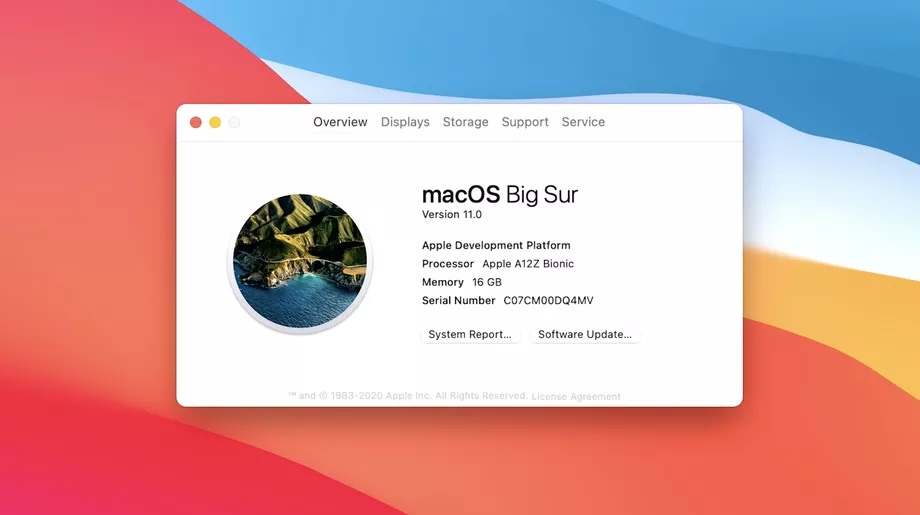With the release of Big Sur, Apple has tapped the last nail on the Mac OS X coffin to officially put the macOS 10 operating system into the history archive.
Finally, Mac OS X has come to an end, and with the new Big Sur update and the official announcement that it plans to switch to macOS 11, Apple has retired the X-OS after almost 20 years.
In other words, this fall, Mac users will finally be able to update to version 10 or X-Mac versions that Apple has been using for nearly two decades.

The original version of the X-OS, for which Apple chose the macOS name in 2016, is more in line with the company’s other operating systems, such as iOS, tvOS, and watchOS. $ 29.99 was released. The operating system was in fact a successor to the 9th version of the Mac, dating back to 1984, and was the last generation of Apple’s classic operating system and a remnant of the Macintosh era.
The launch of the Mac OS X was, in fact, a turning point in the era of Apple’s early computers and the emergence of a variety of new products.
After the introduction of this operating system in 2000, Apple spent nearly a decade rebuilding and improving it, and contrary to the current practice of software companies that typically market their products on an annual basis, the company regularly updates from time to time. It introduced a new one for Mac OS X.
Early versions of the X operating system were commonly referred to as cat cats. Letters such as Jaguar, Leopard, Lion, and Tiger, which were, of course, non-free updates that users had to purchase.
During its lifetime, the Mac OS X has witnessed several generations of Apple hardware. From the iMac and MacBook era to the transition to Intel processors and the advent of devices such as ultra-thin MacBooks and expensive Macs.
But since 2011, Apple has released annual updates for the Mac OS X, and since 2013, Apple has dropped the naming of cats, and the updates have been released for free and annually.
But Apple’s move to macOS 11 is unexpected because the company is expected to keep the macOS 10 brand intact forever in order to strengthen its brand. Microsoft also announced in 2015 that Windows 10 was the last name to be chosen for its operating system, and that it would not continue to write numbers based on numbers.
Now we have to wait and see what decision Apple will make for macOS. Will we see the macOS 12 version next year, or will the operating systems 11.1 and 11.2 be unveiled next year for the next 20 years?
In any case, it seems that OS X’s era is over, and with Apple’s transition from Intel chips to ARM-based processors, the line between the iPhone and the iPad and Apple’s desktop and desktop computers is blurring. It happens.
The bottom line is that OS X was the meaning and concept of different generations of Apple’s hardware and software. But it will take more time to figure out exactly what Apple will decide in the future.

